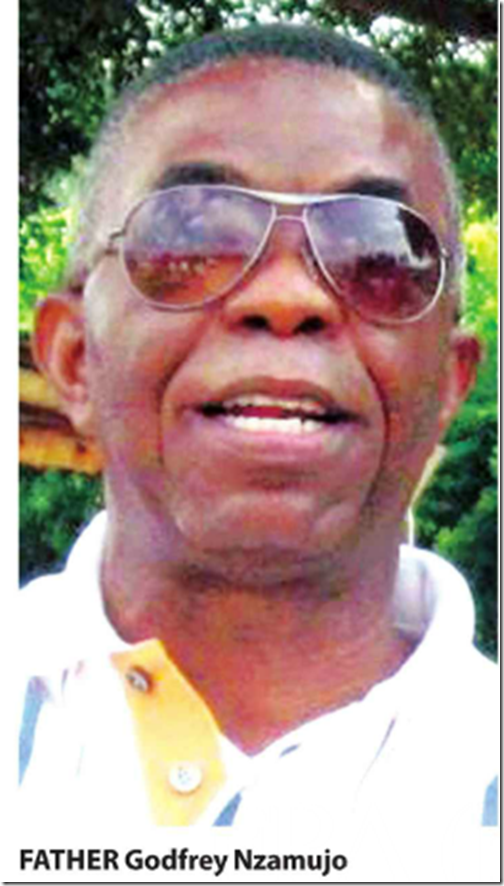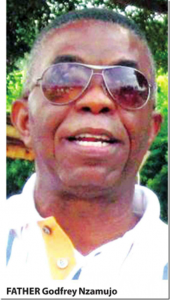


Agro-based experts have faulted the Federal Government of Nigeria’s agricultural production strategy calling at the same time on relevant government agencies to redirect current system of farm production towards embracing a more regenerative strategy for better yields.
The Call was made in Calabar by, Rev. Fr. Godfrey Nzamujo, the Founder of Songhai Farm, in Benin Republic and Professor Patrick Erhabor when they respectively delivered a keynote address and lecture at the 16th edition of the Bassey Andah Memorial Lecture at Transcorp Hotel.
They also explained that in spite of improved food production, the food supply situation remained very low in Nigeria due to the old fashion style of agricultural production.
Nzamujo pointed out that, the disheartening socio-economic situation today, will continue and will definitely get worse “if we continue to navigate with the same “old map” we have been operating from a mechanistic paradigm developed centuries age.
“This ‘wrong map’ developed and adopted slowly since the beginning of the first industrial revolution engineered by the Certesian mechanistic worldview, is not going to be of much help to us today”.
Nzamujo who spoke on the theme: “Agriculture and Food Security in Agriculture” said: “To a large extent, in Africa we have succumbed to a logic of poverty or underdevelopment, simply because we are no longer capable of internally generating the capacities to build the appropriate institutions and structures that will enable us to consistently produce the social values, goods, and services that correspond to our needs and desires.
“Passive consumerism, shallow and piecemeal solutions, and the quick adoption of other peoples’ experiences, solutions, systems of production, and values have cheap substitutes for doing the hard work of growing up and developing native competencies and processes that would guarantee sustainable, broad-based and inclusive growth on the African continent.
“It is now evident that this system of production cannot meet the challenges of our time, especially in Africa. The Songhai system is a part of the search to develop and deploy a new paradigm that harnesses the environmental capitals of our planet to produce more and better quality food for a growing population, while protecting and enhancing our environmental capital.
“The Songhai regenerative agriculture promotes the real ‘greening’ of Agriculture, through an ecosystem approach that draws nature’s contributions to crop and animal growth, such as soil organic matter and soil micro-organisms, rainfall, pollination and bio-control and integrated pest management.
“Our space-time can be filled up more thickly and more efficiently with life cycles of different sizes that occupy different space-times. This is exactly what organisms in a naturally bio diverse ecosystems do to maximize the reciprocal, symbiotic, complimentary, supplementary, and synergetic relationships that enhance the performance of all. Ironically, the greatest danger to sustainable development today is the depletion of the world’s renewable resources.
“If economic activities must increase in a leapfrogging manner, say about tenfold over what is needed today to support a population that will double its size in a few years, then technology will have to reduce its impact on the environment by about twentyfold – this will be a huge technological challenge in matters of environmental sustainability, but also will be an open field for creativity and innovation. In other words, a ‘license to create’ environment will be wide open”.
Nzamujo pointed out that with this approach to Agriculture, “sustainable technology and sustainable development will therefore constitute one of the biggest technological and commercial opportunities in the years to come (as) the concept of sustainable development implies that we can increase our productivity, while protecting and enhancing our environment.
He noted that, “the Songhai initiative is basically the harnessing of these principles to invent and develop new and appropriate technological and developmental trajectories. It is an integrated development system that organically creates dynamic linkages and synergy between agriculture, industry, and services- and also within each of these sub-systems”.
According to him regenerative farming technology and super soil development at Songhai constitute a part of our drive to develop authentic technologies that bring into play the natural forces of synergy and amplification (enzymatic actions) in nature that have been ignored by conventional methods.
“This method creates a pro-biotic environment that empowers the regenerative agents of nature. These agents are capable of creating ‘reverse entropy’ and the ‘super enabling’ conditions and environments like enzymatic actions” and others.
Erhabor on his part said the solution to the Nigeria and Africa’s food crisis could be addressed through a blend of short and long term measures using food redistribution, improved modern system of farming, technical knowhow and among other measures.







